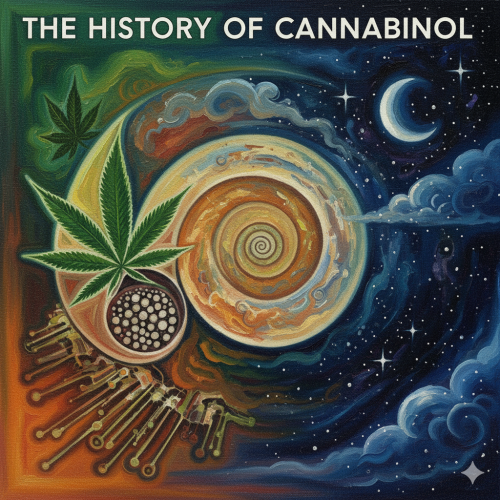The cannabis plant is home to a wide array of cannabinoids, each with its unique properties and effects. Among these, the Delta cannabinoids—Delta-8, Delta-9, and Delta-10 THC—have gained significant attention for their varying psychoactive effects, legal status, and potential therapeutic benefits. In this article, we’ll explore the differences between the many Delta cannabinoids and what they do.
The Main 3 Delta Cannabinoids
Delta-9 THC: The Primary Psychoactive Component
Delta-9 THC (Δ9-tetrahydrocannabinol) is the most well-known and abundant cannabinoid in the cannabis plant. It is primarily responsible for the psychoactive effects, or the “high,” associated with marijuana use. Delta-9 THC interacts with the CB1 receptors in the brain, leading to euphoria, relaxation, altered sensory perception, and increased appetite, commonly known as the “munchies.”
Medical Benefits: Delta-9 THC has been widely studied for its potential therapeutic benefits, including pain relief, anti-nausea effects, appetite stimulation, and muscle relaxation. It is commonly used to treat conditions such as chronic pain, multiple sclerosis, glaucoma, and chemotherapy-induced nausea and vomiting (Vitality CBD).
Legal Status: Delta-9 THC is classified as a Schedule I substance under the Controlled Substances Act in the United States, meaning it is illegal at the federal level. However, states have varying laws, with some allowing medical and/or recreational use.
Delta-8 THC: The Milder Alternative
Delta-8 THC (Δ8-tetrahydrocannabinol) is an isomer of Delta-9 THC, meaning it has a similar chemical structure but with slight differences. These differences lead to a milder psychoactive effect compared to Delta-9. Users often describe Delta-8 THC as offering a more clear-headed, less anxious high, making it an attractive option for those who find Delta-9 THC too intense or anxiety-inducing.
Medical Benefits: Delta-8 THC shares many of the therapeutic benefits of Delta-9, such as pain relief, anti-nausea, and appetite stimulation. However, due to its less potent psychoactive effects, it may be more suitable for individuals who need relief but want to maintain better cognitive function.
Legal Status: Delta-8 THC occupies a legal gray area. It can be derived from hemp, which was legalized under the 2018 Farm Bill, making Delta-8 THC technically legal in some states. However, several states have moved to ban or restrict Delta-8 due to its psychoactive properties (Vitality CBD).
Delta-10 THC: The Newcomer with Uplifting Effects
Delta-10 THC (Δ10-tetrahydrocannabinol) is another isomer of Delta-9 THC, but it is less prevalent and less studied than Delta-8 or Delta-9. This particular Delta is gaining popularity for its more uplifting and energizing effects, which are often compared to those of Sativa strains of cannabis. Users report feeling more alert and focused with Delta-10 THC, making it a potential option for daytime use.
Medical Benefits: Research on Delta-10 THC is still in its early stages, but it is believed to share some of the therapeutic properties of its counterparts, such as anti-inflammatory and neuroprotective effects. Its energizing nature may also be beneficial for combating fatigue and boosting motivation.
♦ Interested in high-quality CBD edibles and merchandise? Check out the FGE shop and FGE Etsy Store ♦
Legal Status: Similar to Delta-8 THC, Delta-10 THC is legal in some states under the 2018 Farm Bill if derived from hemp. However, its legal status is also ambiguous and subject to change as more states review and regulate emerging cannabinoids.
Comparing the Psychoactive Effects
- Delta-9 THC: The most potent and well-known, producing strong psychoactive effects.
- Delta-8 THC: Milder than Delta-9, offering a more relaxed, clear-headed high.
- Delta-10 THC: Less potent than Delta-9, with more uplifting and energizing effects.
Delta-7 THC
Delta-7 THC is a relatively rare cannabinoid, and there is limited research on its effects and potential benefits. It is believed to have psychoactive properties, but its potency and specific effects are not well-documented. Because of its rarity and the lack of comprehensive studies, Delta-7 THC is not widely available or used in the cannabis industry.
Delta-6 THC
Delta-6 THC, also known as Delta-6a(10a)-THC, is another lesser-known isomer of THC. It is reported to have psychoactive effects, but like Delta-7, it is less potent than Delta-9 THC. Research on Delta-6 THC is minimal, and it is not commonly found in cannabis products. However, some studies suggest it may have similar effects to other THC isomers, such as mild euphoria and relaxation.
Delta-5 THC
Delta-5 THC is even less common and less studied than Delta-6 and Delta-7 THC. There is very little information available about this cannabinoid, and it is not typically found in commercial cannabis products. The limited research on Delta-5 THC means its effects and potential uses are not well understood.
Delta-11 THC
Delta-11 THC is also a lesser-known cannabinoid, similar in structure to Delta-8, Delta-9, and Delta-10 THC, but it is less common and less studied. Preliminary reports suggest that Delta-11 may produce stronger psychoactive effects than Delta-9 THC, potentially offering more intense euphoria. However, due to limited research, the specific effects and therapeutic benefits of Delta-11 THC are not well understood. It falls into a legal gray area, much like Delta-8 THC, depending on regional regulations. As an emerging cannabinoid, more research is needed to fully understand its properties and potential uses.
Missing Chemical Structures and Isomers
In organic chemistry, the “Delta” designation in cannabinoids refers to the position of a double bond in the molecule’s carbon chain. Lower-numbered “Delta” cannabinoids like Delta-4, Delta-3, Delta-2, Delta-1, and Delta-0 do not have a known or stable configuration that would make them function similarly to the other Delta cannabinoids. There are no naturally occurring or synthetically created THC isomers with these lower-numbered designations that have been identified or studied.
Absence in Research and Industry
- Scientific Literature: No significant research or literature identifies or discusses these lower-numbered Delta cannabinoids.
- Cannabis Industry: These compounds are not found in cannabis products, nor are they recognized or utilized in the industry.
Conclusion
The Delta cannabinoids—Delta-8, Delta-9, and Delta-10 THC—each offer unique experiences and potential therapeutic benefits. Whether you’re seeking relief from pain, anxiety, or simply looking for a different kind of high, understanding these differences can help you make informed choices about which cannabinoid might be right for you. As always, it’s important to consider the legal status in your area and consult with a healthcare professional if you’re considering using any form of THC for medical purposes.
While Delta-7, Delta-6, and Delta-5 THC exist as part of the complex cannabinoid landscape, they are not widely recognized or used due to the lack of research and commercial availability. Most of the focus in cannabis research and product development remains on Delta-8, Delta-9, and Delta-10 THC, which have more established effects and therapeutic potential.
Delta-4, Delta-3, Delta-2, Delta-1, and Delta-0 THC are not recognized cannabinoids, and they do not exist in the context of known THC isomers. The Delta series primarily includes Delta-8, Delta-9, and Delta-10 THC, which are the most relevant and studied for their effects and therapeutic potential.



